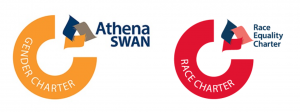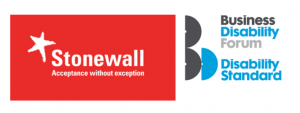This blog is part of a series from Director of Equality, Diversity and Inclusion, Sarah Guerra, where she will be addressing the ‘whole picture’ of EDI, why it is important, and how we go about making effective, systemic change.
An Inclusion or Diversity audit helps an organisation to understand both the culture and demographics of their employees. It enables you to see the breadth of diversity, and which factors and activities are needed to help increase inclusion across the business.
An audit can include a variety of diagnostic tools and activities, such as gender pay gap analysis, supplier diversity audits, or equality impact assessments or as we call them at King’s, since the 2010 Equality Act – Equality Analysis. King’s uses Equality Analysis (EA) to systematically analyse the potential impacts that new policies, practices, projects, or services might have on different groups within the King’s community.
Diversity audits should be seen as, and feel like, positive activities towards building an inclusive culture. They can be powerful in bringing together data and analysis through consultation with employees. They should provide a holistic view of the organisation in terms of diversity, equality, and inclusion, enabling the creation of focused, clearly evidenced strategies to achieve improvements.
As well as generating valuable data, one of the key benefits of carrying out these audits is to show staff that their views and opinions on how we become a more inclusive employer matter. Depending on the number of employees involved, this can generate many ideas, sometimes too many for the organisation to cope with. So, when starting out, the parameters or ambitions of the audit need to be clear, and everyone needs to be ready for the volume of information and action it might bring. This being so it is important to have a clear way of feeding back how community input and ideas have been reviewed, actioned, or not taken forwards – and why. Every step of this process should be part of building that overall trust I talked about in my blog-post The Truth about Trust.
In higher education (HE) there are two clear and familiar audit frameworks: Athena Swan and the Race Equality Chartermark. (Though perhaps many people haven’t thought about them like that.)
The Athena Swan Charter framework supports and transforms gender equality within higher education (HE) and research. It was established in 2005 to encourage and recognise commitment to advancing the careers of women in science, technology, engineering, maths and medicine (STEMM). King’s has been a member since its inception and was awarded Bronze status in 2016. 9 of Kings’ 18 academic departments have achieved Silver awards, and in December 2020 we submitted an application for a whole university Silver award – you can read more about this here.
Advance HE’s Race Equality Charter (REC) is a framework through which institutions work to identify and self-reflect on institutional and cultural barriers standing in the way of Black, Asian and Minority Ethnic staff and students. King’s was an early adopter and joined the scheme at its inception. We recently renewed our Bronze award – you can read more about our plan and findings here.
As well as the two well-known HE frameworks recognising our determination to be intersectional in our approach, we also take part in the The Stonewall Workplace Equality Index, and the Business Disability Forum’s Disability Standard.
The Stonewall Workplace Equality Index is a way of measuring progress on LGBTQ+ equality. King’s first submission to Stonewall’s WEI was in 2019. The scheme was in its fifteenth year, and 445 organisations from diverse sectors – spanning banking to healthcare, education to law and retail to government – participated.
The Disability Standard is a tool developed by the Business Disability Forum (BDF) to monitor the accessibility of an organisation across all aspects of its business, including products and services, recruitment and facility. We undertook this standard in 2017 and scored less than 50%. Hence disability inclusion became one of the areas specifically identified in our EDI strategy for improvement.
In 2020 we also took part in the Working Families benchmark. This is the only tool available that measures all aspects of flexible working and work-life policies and practice. It evaluates how well these are integrated into your organisation’s values and culture, and looks specifically at how well you support and engage with parents and carers.
So, wow that is a lot of audit. They have all been so valuable but also SOOOOO much work – and I thank all of those who helped us to undertake them. I really look forward to the day we have a combined intersectional benchmark.
It is easy to see these charter marks and measures as a bureaucratic exercise. Indeed, recently the government characterised much of this in just this way. However, it is essential that we recognise that for organisations to thrive; to attract and retain the best people, and forge conditions in which those people can be successful and healthy, we need to undertake these kinds of detailed investigation. To understand the range of our communities’ experiences, we need to see through the eyes of individuals, as well as the big picture that data reveals. This enables us to identify overall themes that we can address to help everybody, as well as issues which may seem smaller because they only impact a few people but can make such a critical difference.
I urge you to browse all our ‘audits’ and reports – you can get a summary in our Annual report and then dig deeper.

